If you have spent any time in a gym setting, then you would have heard people refer to the concept of muscle memory – and then, no doubt, you would have heard people referring to it as a complete and utter load of rubbish.
A myth, if you will.
But this has just been flipped on its head.
See, over the last couple of years we have seen some very interesting research come out suggesting the muscle memory may in fact be a real thing – which could have huge implications for training.
What is muscle memory?
When you hear people talking about muscle memory, they are essentially referring to the phenomenon where, after an extended period of detraining, your muscle size and strength return faster than it took to build them up in the first place (Gundersen, 2018).
This means that it might have taken you 6 months of hard training to build some muscle and increase strength. Then, after 6 months off, it might only take you three months of training to get back to your best.
I am sure you have probably experienced something similar before.
But is it real, or is it in our head?
Is muscle memory real?
This is where things start getting really interesting.
See, over the last couple of years we have seen some research demonstrating that there is actually a form of memory in your muscle fibres (Psilander, 2019).
Each of your muscle fibres contain what is known as myonuclei. These are a structure within the muscle cell that act as the ‘brain’ of the cell – in this manner, they are what tells the muscle fibre to grow in response to strength training.
Interestingly, when you undergo a period of strength training, you see an increase in the number of myonuclei within your muscle fibres.
And this increase is permanent.
Research has shown that even after a heavy period of detraining, you will never lose these myonuclei – indicating that muscle memory is in fact a very real thing.
What is the importance of muscle memory?
What is the importance of muscle memory – I mean, why does it matter?
Well, to give you some explanation, I want to highlight a rather famous study from the 1990s (Staron, 1991).
In this study, a group of researchers put a bunch of women through a heavy strength training regime that lasted 20 weeks in duration. Over this time period, they saw huge increases in both muscle strength and muscle size.
Then they got them to stop training completely for 32 weeks.
As I am sure you can imagine, they lost all the strength and muscle that they had gained during the training period.
But wait, there’s more.
After doing 32 weeks of nothing, the researchers put the women back on the same strength training regime they started the entire study with – and amazingly, they regained all their strength and size in a mere 6 weeks.
Muscle memory and muscle growth
All this research essentially demonstrates that if you have trained hard in the past, you will have better capacity to grow muscle in the future – even after a lengthy period of detraining.
This means that people who have trained hard in the past (say, college athletes for example) will be able to put on muscle mass much faster than someone who has never been in a gym setting – even if they currently look exactly the same.
Pretty cool, right?
Related Article: Muscle Growth and Loss
Muscle memory and surgery
One of the most interesting things I like to consider when talking about this concept relates to muscle memory after surgery.
We know that surgery (and often the immobilization that follows) can lead to a huge loss of muscle size and strength. This can lead to a loss of function, which can even increase injury risk and reduce quality of life.
However, if you choose to train hard before having surgery, then you can use the concept of muscle memory to your advantage.
By training specific muscle groups and movement before going into surgery, you will increase your number of myonuclei. Then, after surgery during the rehabilitation period, you will gain strength and size back much quicker.
This can essentially mitigate the negative effects associated with surgery, getting you back and functioning your best in no time.
Related Article: The Importance of Maintaining Mobility during Hospitalization
Muscle memory in athletes
And finally, let’s talk about athletes.
In short, athletes who train during their younger years will see a huge increase in the number of myonuclei within their muscle cells. As they get older, this will have a direct impact on their overall capacity to develop strength and size.
This suggests that adolescent athletes enrolled in a high-quality strength and conditioning program may hold an advantage over the rest of the competition – an advantage that will last them a lifetime.
Tips for athletes to build muscle memory
Lastly, I wanted to outline some tips for aspiring athletes who want to use muscle memory to their advantage:
- Start strength training early: as I alluded to above, starting strength training early in your career will cause a huge increase in the number of myonuclei within your muscle cells. This will allow you to build muscle faster after the off-season – even if you have stopped training completely.
- Spend dedicated training blocks focused on muscle growth: during the off-season, using higher volume blocks of training (8-12 weeks in duration) will allow you to increase your muscle size significantly. As previously discussed, it is this type of training that can contribute to muscle memory – which will make the rest of your in-season training more effective.
- Prioritise nutrition: finally, when you are training to improve muscle size (especially early on in your career), you need to eat enough to optimise muscle growth. This means consuming adequate protein while making sure that your total energy intake exceeds your energy demands. It is this that unlocks your potential to produce new myonuclei.
And boom, there you have it – three simply tips to boosting your training potential indefinitely.
Take Home Message
It is hard to believe that only a decade ago muscle memory was considered a myth – however, research has made it apparent that this is not the case at all.
In fact, training hard and building muscle in your early years may give you a lifetime advantage on the field.
What are you waiting for? Get training.
References
Gundersen, Kristian, et al. “Muscle memory: virtues of your youth?.” The Journal of physiology 596.18 (2018): 4289.
Psilander, Niklas, et al. “Effects of training, detraining, and retraining on strength, hypertrophy, and myonuclear number in human skeletal muscle.” Journal of applied physiology 126.6 (2019): 1636-1645.
Staron, Robert S., et al. “Strength and skeletal muscle adaptations in heavy-resistance-trained women after detraining and retraining.” Journal of Applied Physiology 70.2 (1991): 631-640.
You Might Like:
Are Abdominal Crunches Effective?
For the longest time, crunches were a staple in practically every exercise program on the...Everything You Need to Know About Lifting to Failure
I love that gym culture has become increasingly popular over the last decade. People are...Recruit The Glutes: Drills to Engage Glute and Lateral Line
John Barry Sports Performance Coach Fusion Physical Therapy and Sports Performance New York, NY We’ve...Muscular Potential: Men vs Women
It has long been thought that when it comes to building muscle, women are at...The Effects Of Inter-Set Stretching On Muscle Growth
When we think about building muscle, developing strength, and generally increasing performance, strength training often...The Trap Bar Deadlift: Improve Your Athletic Performance
Hunter Bennett When it comes to improving athletic performance, strength training is king. It can...Perfecting Your CrossFit Pull-Up
Hunter Bennett Over the last few years, CrossFit has truly revolutionized the health and fitness...Developing & Maintaining Athleticism
Hunter Bennett When we think of great athletes, we think of their physical skills on...The Rise of CrossFit
Hunter Bennett Over the last few years, we have seen a resurgence in both high-intensity...How to Improve Your Posture
Hunter Bennett Changes in Movement Over the last 50 years or so we have seen...Maximize Athletic Performance with the Hip Thrust
Hunter Bennett The hip thrust has become an increasingly popular training exercise with athletes and...Weight Training Techniques: The Benefits of Unilateral Training
Alyssa Bialowas Unilateral exercises are single-leg or single-arm movements. The primary benefit of including unilateral...The Best Glute Exercises: How to fire your glutes!
Alyssa Bialowas About Your Glutes – The gluteus maximus is located in the buttocks and...3 Benefits of CrossFit
Alyssa Biawolas CrossFit remains to be one of the most popular and most controversial fitness...The 7 Myths of Weightlifting
Evan Stevens There are common utterances when the conversation shifts to weightlifting and why people...Injured? Increase Your Muscle Mass with Blood Flow Restriction Training
Dayton Kelly It is not unusual in many gyms to see athletes, particularly weight lifters,...Strength Training in Older Women Wards Off Aging
Evan Stevens At Forever Fit Science we have long discussed the importance of adding strength...Gain Strength, Power & Force for Maximal Performance | Forever Fit Science
Stability is simply controlled strength, power, and force. The more stability you have, the more...Strength Training Program for Endurance Runners
Evan Stevens Endurance athletes have a tendency to ditch the weights for added miles. Sure,...Vibration & Elastic Band Exercises On Shoulder Strength
A Review by Alyssa Bialowas The shoulder is a tricky joint as it must provide...Strength Training Can Improve Chronic Plantar Fasciitis
Ryan Cross, B.A. Hons (Kin), MScPT, FCAMPT Registered Physiotherapist Do you feel sharp pain on...Fascia Warm Up, Strength, & Stretch Plan
Ryan Cross, B.A. Hons (Kin), MScPT, FCAMPT Registered Physiotherapist in Sarnia, Ontario, Canada Last week...12 Strength Exercises For Middle Distance Runners | FastTwitchGrandma Sprinting Tips & Tricks
Forever Fit Science brand ambassador and author Evan Stevens goes through a strength training regime...Increase Strength, Increase Lifespan – Powerlifting Could Change Your Life
Katie Rose Hejtmanek, PhD, Anthropologist Increase Strength, Increase Lifespan Part 2 – Powerlifting as Life Changing...5 Creative Hip Strengthening Exercises
Ryan Cross, B.A. Hons (Kin), MScPT, FCAMPT Registered Physiotherapist in Sarnia, Ontario, Canada The importance...Ski Training Magic Part 2: Hurry Up and Weight!
Hank Shell Another week, another round of snowfall in Colorado’s San Juans. My friend and...Bond With Your Child – Intergenerational Gymnastics
Did you know – children who bond with their parents as a toddler are less...66 Burpees For 66 Years | Inside The Gym Of A Crossfit Guru
What is your plan for your next birthday? How about performing burpees? Turning 30? 30...Increase Strength, Increase Lifespan
Katie Rose Hejtmanek, PhD, Anthropologist With a significant portion of the world’s population aging, it is...Strengthen Your Rotator Cuff
Forever Fit Science physical therapist, Ryan Cross, demonstrates a simple rotator cuff exercise. By performing...Women’s Weightlifting Highlights!
The Rocky Mountain State Senior Games in Colorado Springs, CO hosted the olympic weightlifting competition....Mastering the Rowing Stroke
Dayton Kelly Mastering the Rowing Stroke or Tackling Technique on the Rowing Ergometer If you...Meet Olympic Masters Powerlifter Gordon Santee
Gordon Santee, 70, from Redondo Beach, California is an Olympic powerlifter and referee. Along with...Creatine Supplementation For Mature Athletes
Creatinine for more than just body builders? Muscle building in old age. Dayton Kelly The...Strength As A Safety Net
Jon Carlock As time passes and we age, we naturally become more vulnerable to injury....Pull-Up Power! – The Road to Your First Pull-Up
By Hank Shell Real talk: I tend to get ahead of myself when writing...Strengthen Your Muscles, Strengthen Your Mind
Contributed by Julia C. Basso, Post-doctoral Research Scientist, Center for Neural Science, New York University Strengthen...Children Weight Lifting: What You Need To Know!
Dayton Kelley Should You Allow Your Child To Weight Lift? This question has seen much...4 Stages of Core Training for Lower Back Pain
Ryan Cross, B.A. Hons (Kin), MScPT, FCAMPT Registered Physiotherapist at CBI Physiotherapy and Rehabilitation Centre...Off Season Ski Conditioning
Hank Shell Off-season ski conditioning: a primer I can’t remember exactly what caused the crash....Strength Training: Integral to Wellness as We Age
Contributed by Gillian White, HBSc, MSc, PhD(C), Faculty of Kinesiology and Physical Education, Human Physiology...The post Is Muscle Memory in Athletes Real? appeared first on ForeverFitScience.







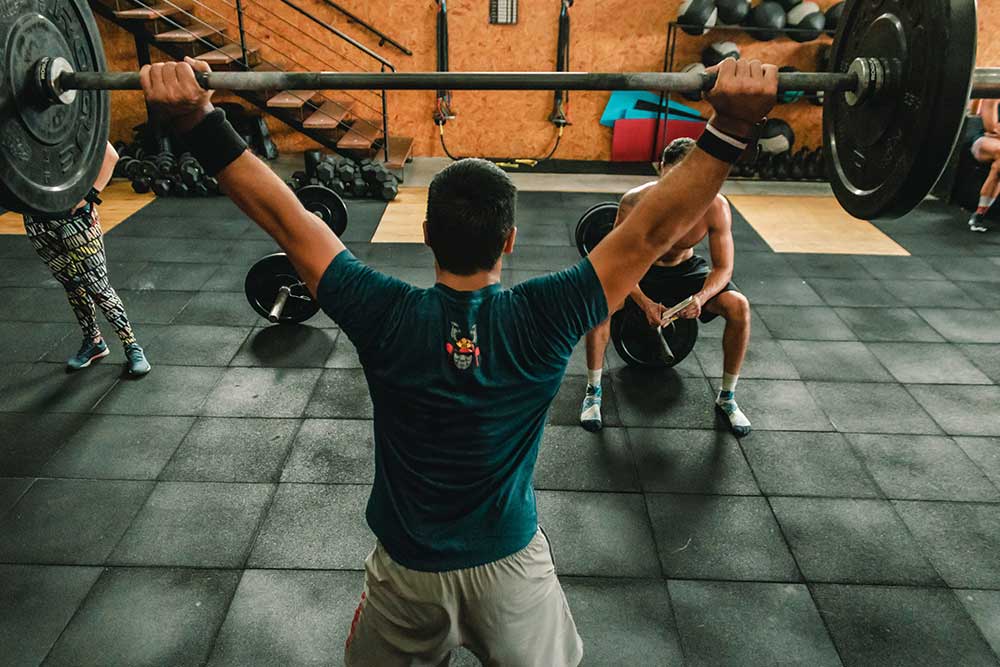






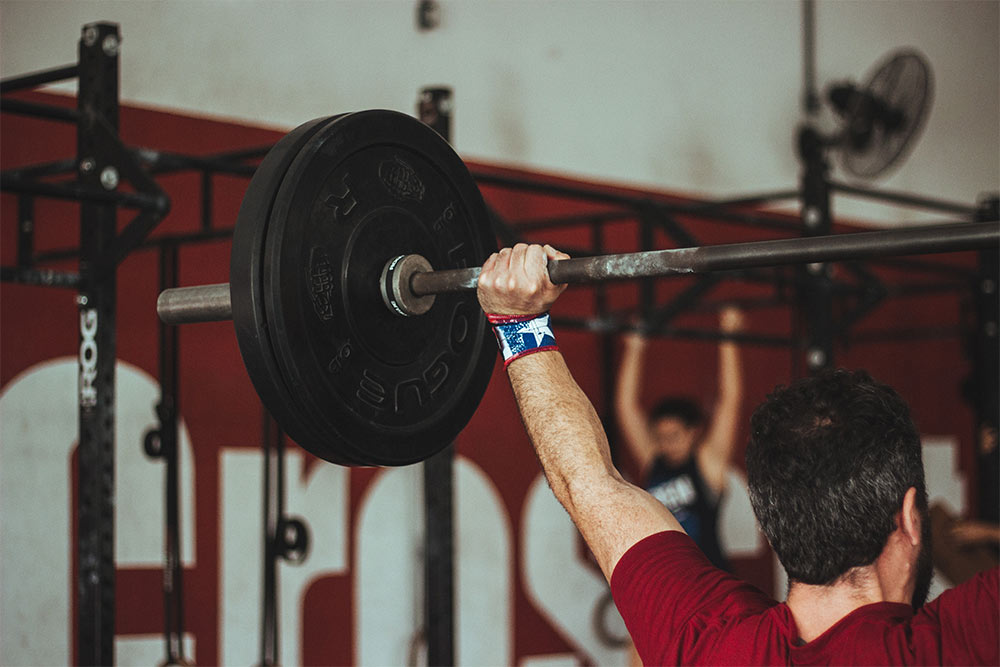








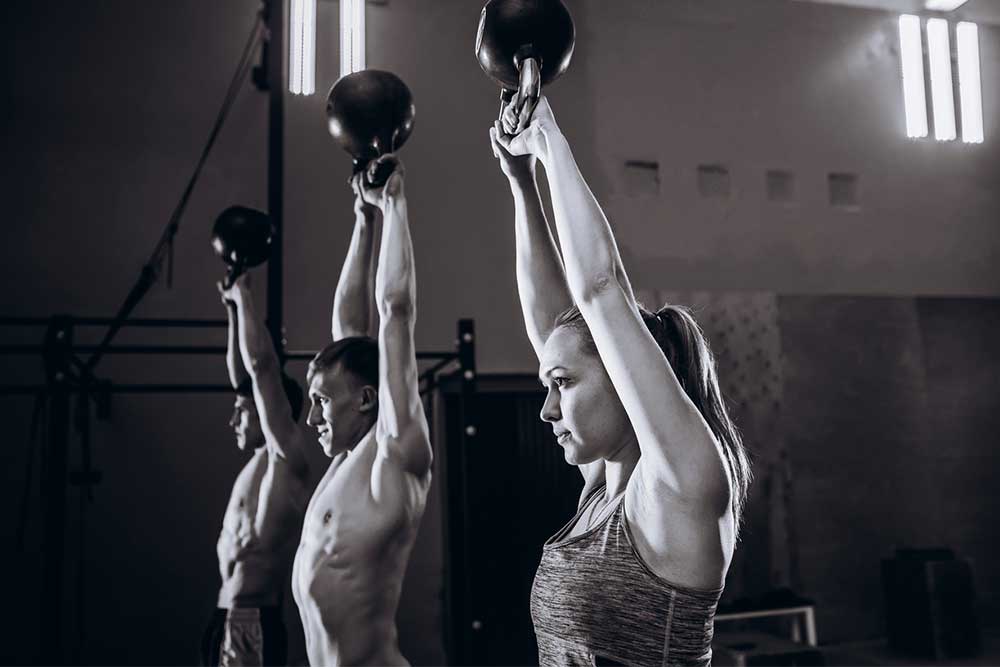







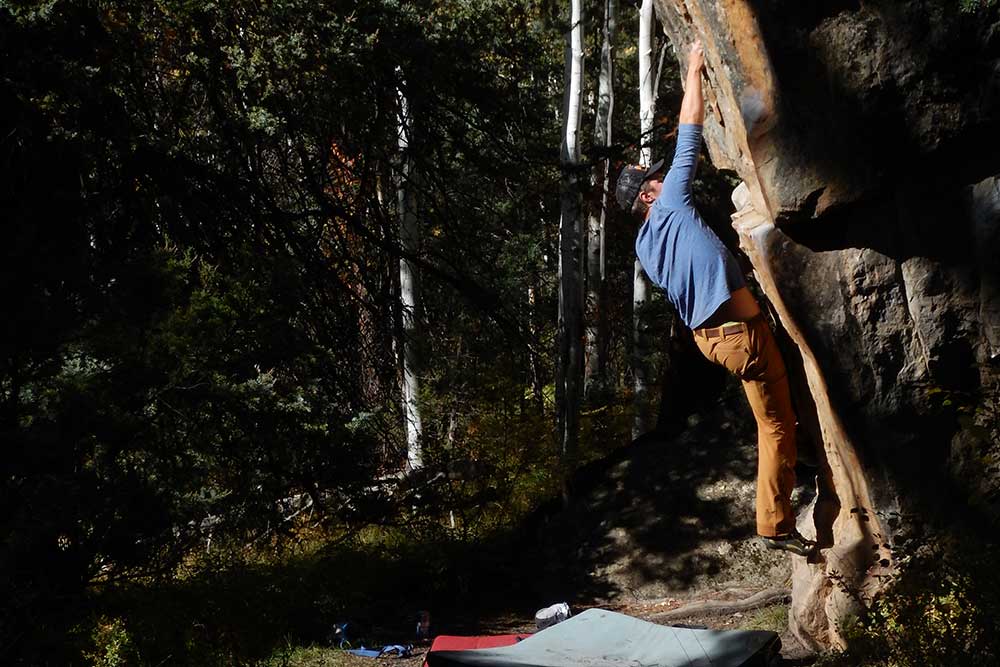


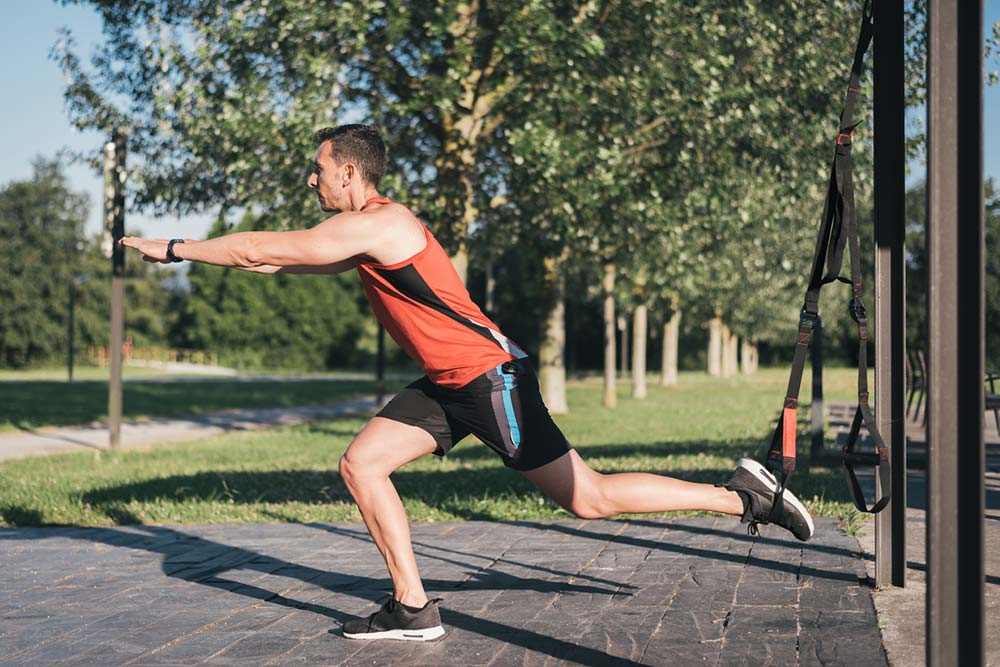


No comments:
Post a Comment